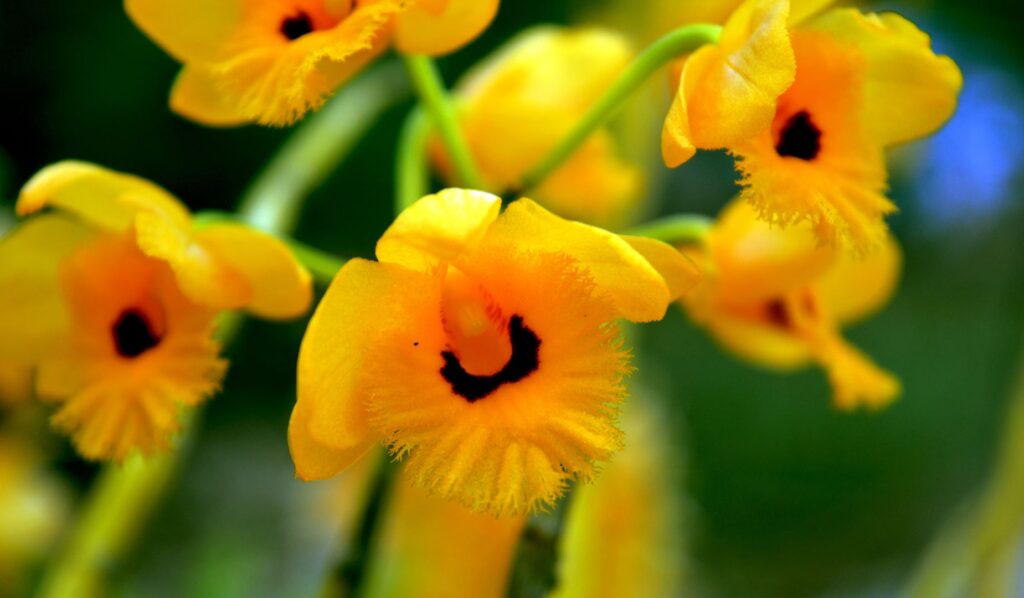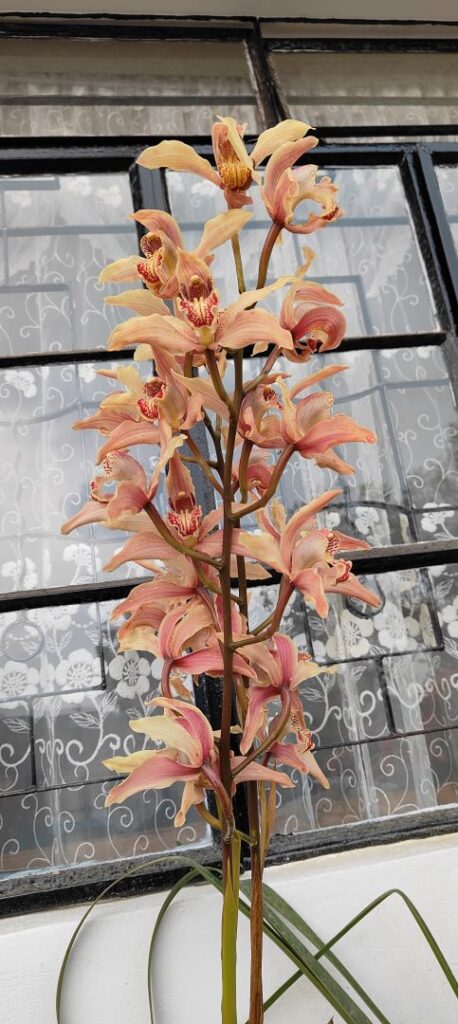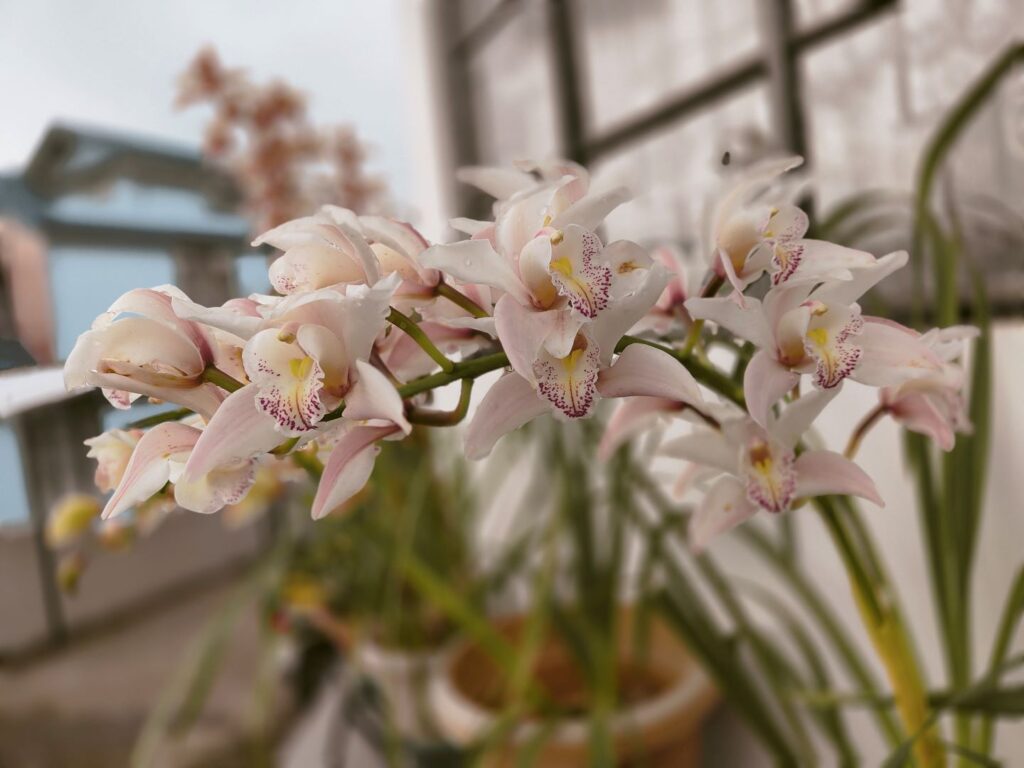Meghalaya’s Orchid: Exploring the Enchanting Wonderland of Blooms
Introduction
Nestled amidst the misty hills and verdant forests of Meghalaya lies a botanical wonderland waiting to be explored—the captivating world of orchids.
With over 400 species recorded within its borders, Meghalaya boasts an impressive diversity of these enchanting flowers, each contributing to the region’s rich tapestry of biodiversity.
Discovering Meghalaya’s Orchid Species
In Meghalaya, a region known for its rich biodiversity, various types of orchids thrive, contributing to the region’s floral diversity and beauty. Here are some notable types of orchids found in Meghalaya:
Dendrobiums
Dendrobium orchids are one of the most diverse and abundant orchid genera found in Meghalaya.

These orchids exhibit a wide range of colors, shapes, and sizes, with species like Dendrobium densiflorum and Dendrobium pierardii commonly spotted in the region’s forests.
Vandas
Vanda orchids are characterized by their vibrant, large flowers and are often found growing on trees or rocks in Meghalaya’s humid forests.
The Blue Vanda (Vanda coerulea) is a particularly notable species native to the region.
Coelogynes
Coelogyne orchids, commonly known as the Crested Orchids, are appreciated for their elegant, fragrant flowers.
Coelogyne cristata is one of the prized species found in Meghalaya, known for its pristine white blooms adorned with delicate fringes.
Eria
Eria orchids are small to medium-sized epiphytic or lithophytic orchids with unique flower structures.
Several Eria species are found in Meghalaya, including Eria coriifolia and Eria pubescens.
Bulbophyllums
Bulbophyllum orchids are known for their peculiar and often intricate flowers.
These orchids exhibit a wide range of adaptations and are found in diverse habitats in Meghalaya, from lowland forests to montane regions.
Liparis
Liparis orchids are terrestrial or lithophytic orchids characterized by their small flowers arranged in dense clusters.
Species like Liparis nervosa and Liparis linearis can be found in Meghalaya’s forests.
Phaius
Phaius orchids, commonly known as the Nun’s Orchids or Swamp Orchids, are terrestrial orchids with large, showy flowers.
While not as common as some other genera, certain Phaius species can be found in suitable habitats in Meghalaya.
Cymbidiums
Cymbidium orchids are prized for their long-lasting, colorful blooms and are often cultivated for ornamental purposes.

Several Cymbidium species, including Cymbidium aloifolium, are native to Meghalaya and can be found in the wild.
Cultural Significance of Orchids in Meghalaya
Beyond their aesthetic appeal, orchids hold a special place in the traditions and folklore of indigenous communities in Meghalaya.
Revered as symbols of love, purity, and fertility, orchids are incorporated into rituals, ceremonies, and traditional medicine practices.
The Khasi and Jaintia tribes, in particular, have a deep-rooted connection with orchids, weaving them into their cultural fabric and folklore.
Challenges and Conservation Efforts
Despite their cultural significance, orchids in Meghalaya face threats from habitat loss, deforestation, and illegal harvesting. Climate change poses additional challenges, affecting the delicate balance of ecosystems and disrupting orchid habitats.
Conservation efforts aimed at preserving Meghalaya’s orchid diversity are therefore essential, involving community engagement, habitat restoration, and sustainable cultivation practices.

Embracing the Orchid Wonderland
As travelers venture into Meghalaya’s orchid wonderland, they are greeted by the sights, scents, and sounds of a botanical paradise unlike any other.
Whether trekking through mist-shrouded forests, exploring hidden valleys, or simply admiring the vibrant blooms along the roadside, every moment spent in the company of Meghalaya’s orchids is a testament to the wonders of nature and the resilience of life in all its forms.
Conclusion
Meghalaya’s orchid wonderland offers a botanical adventure like no other, inviting visitors to immerse themselves in the beauty, diversity, and cultural richness of this captivating land.
As we marvel at the intricate designs of orchid blooms and the delicate balance of ecosystems they inhabit, let us also renew our commitment to preserving and protecting these precious treasures for generations to come
Share this content:













